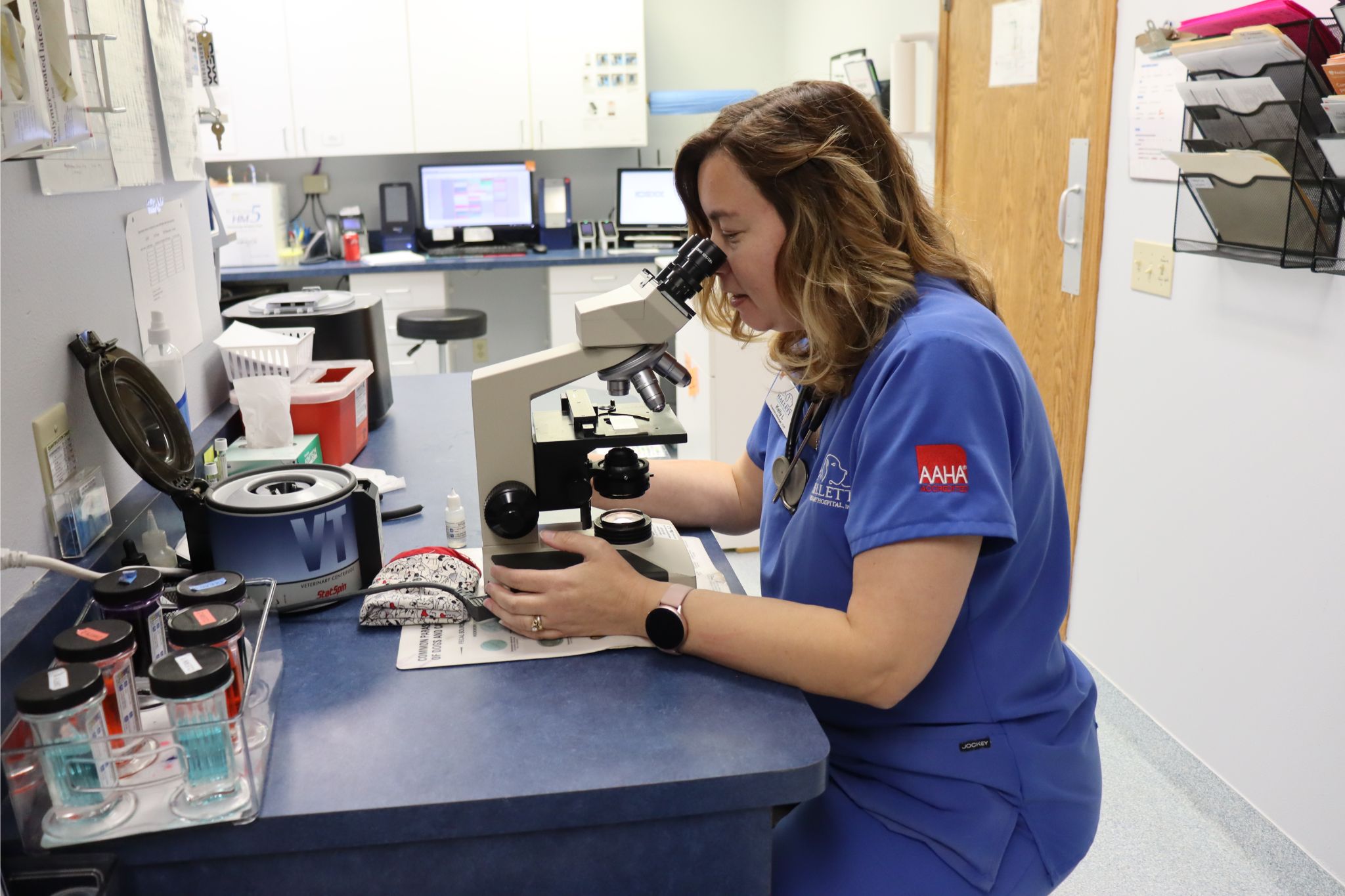Dog Allergy Symptoms
Allergies in dogs are a common problem and can cause significant discomfort.
Here Are Some Allergy Symptoms Commonly Found In Dogs:
- Excessive licking
- Compulsive scratching
- Periodic chewing on the same or different body parts or areas
- Regularly rubbing body or body parts against the ground, walls, furniture, etc.
- Frequent sneezing and/or wheezing
- Skin irritation/fur loss
When Can A Dog Develop Allergies?
Most allergies develop in the second year of life for dogs. In the first year, the dog will be exposed to many types of allergens primarily through contact with the skin. A smaller number of allergies may be caused by food (usually the protein source). In the second year of life, the dog's immune system will overreact to the antigen(s) causing a release of immune cells that release inflammatory substances (such as histamine) which leads to symptoms of itching. Most allergic dogs are born with a less than optimal skin barrier which allows for antigens to enter the skin more easily. Dogs that suffer from allergies have abnormal skin and a less than optimal immune response which allows for secondary infections to occur. It is important to understand that dog allergies are due to a complex set of issues that tends to change as the dog's environment changes.
Because these symptoms can have several possible causes, we recommend making a veterinary appointment immediately if you notice your dog exhibiting any of the above symptoms. Early diagnosis and treatment of dog allergies not only increases the likelihood of your dog's treatment being successful but can also be less expensive than delaying treatment. The longer you wait, the more your dog suffers and more severe the secondary infections can become.
Dog Allergy Testing
The first step in determining the cause of your dog's symptoms is a thorough exam by your veterinarian. In addition to looking for external skin parasites such as fleas and mites, your veterinarian will want to do some diagnostics to help him/her determine what types of infections may be present. After diagnosing and treating for external parasites and infections, your veterinarian may want to discuss allergy testing. Once your veterinarian believes that allergies are the root cause of skin irritation/infections and discomfort, then they may recommend testing for specific allergens. Dog allergens fall into the following groups:
and discomfort, then they may recommend testing for specific allergens. Dog allergens fall into the following groups:
- Environmental allergens - including many kinds of grass and plants, dust mites, and molds
- Flea allergies - many dogs are highly allergic to flea bites
- Food allergies - including different types of proteins
There Are Two Main Types Of Dog Allergy Testing
Blood Testing and Intradermal Skin Testing. Each type of canine allergy testing is administered differently and has specific benefits and drawbacks. However, the following points hold true for both types of dog allergy testing:
- It is best to perform these test during the season(s) when the allergy is the worst and therefore most likely to generate an accurate result
- Testing should come after examination for other potential causes and irritators, including:
- Fleas
- Mites
- Fungal or yeast infections of the skin (common secondary invaders)
- Chronic bacterial infections (common secondary invaders)
- Hypothyroidism
A veterinarian might also order a 12-week hypoallergenic diet to rule out a food allergy. Food allergies are difficult to detect using either dog allergy testing method, and therefore should be determined through dietary manipulation. Once all of these possibilities are ruled out, the veterinarian will order either a blood or skin test to determine the presence of environmental allergies.
What Causes A Dog To Develop Allergies?
Think of a dog's skin like saran wrap. It covers and protects the dog. However, dogs with allergies are born with abnormal skin (like holes in the saran wrap). These abnormalities in the skin allow for the allergens, which are normal in all environments, to enter through the skin layer and set off an allergic response which causes itching and redness. So, it is important to understand that dogs who suffer from allergies do not have normal skin. Additionally, these dogs do not have a healthy immune response.
In addition, this inflammation in the skin will change the health of the skin and allow for secondary invaders such as bacteria and yeast to enter the dog's system. In addition, many of these dogs have less than an optimal local immune response to these secondary invaders making them more susceptible to yeast and bacterial infections. Yeast and bacteria are always present in low numbers on every dog's skin. Unfortunately for dogs with allergies, their skin and immune response are inadequate to fight off these secondary invaders.
Treating Allergies In Dogs
It is helpful to understand that allergies cannot be cured but can be successfully treated. There are many types of treatment and include the combination of oral medication, bathing, topical therapy and even injectable antigen therapy.
Prescribing the correct allergy medicine for dogs depends largely on the symptoms that the dog is displaying, the severity of the symptoms, and preexisting medical conditions. Allergy medicine for dogs may involve one or more of the following types of therapies:
- Anti-inflammatory therapy: Treats dog allergies with anti-inflammatory drugs such as corticosteroids, or with antihistamines that quickly block the allergic reaction in most cases.
- Immune modulators: These modify and reduce the dog's immune response to reduce the amount of itching which occurs from exposure to the antigens
- Food and Dietary supplements: These include the use of protein select diets and supplementation of fatty acids. Some dogs have allergies just to food and some may also have a food allergy and/or contact allergies. The use of Omega three fatty acids can help improve the patient's response to steroids and antihistamines in some cases
- Antipruritic therapy (anti-itch): These include antihistamines, corticosteroids and a new medications known as Apoquel and Cytopoint which specifically targets the itch response by blocking the substances in the body which cause itch
- Shampoo therapy: Bathing can be very helpful to remove the antigens the dog has been exposed to and also to remove dead skin cells and help treat secondary infections such as yeast and bacteria. Some therapeutic shampoos contain anti-inflammatory ingredients that may further benefit your dog
- Hyposensitization therapy: If the specific offending allergens are identified by allergy testing, allergy shots can be given to the patient. This form of allergy medicine for dogs consists of weekly injections of very small amounts of an antigen. Repeated dosing helps reprogram or desensitize the patient's immune system. Approximately 50% of treated dogs will see significant improvement in their clinical signs, while approximately 25% more will see a decrease in the amount or frequency of anti-inflammatory therapy
To learn which allergy medicine and what dog allergy treatment methods will work best for your canine friend, schedule an appointment with your veterinarian today. Every allergy case is different and must all be approached on a case by case basis.

